Hi Fellow REIN (expert advise needed!)
I know this issue has been brought up before by other members. However, I feel that everyone`s situation is different so it is still worthwhile to seek some expert advice on here.
I have a rental property that generates about $200 cash flow a month. I currently own principle residence as well.
Some of you have suggested the following before on what to do with the cash flow:
1) spend the cash flow
2) save up for down payment on other projects (slowly)
3) pay down principle resident since the interest is not tax-deductible
*But I want to explore the option of paying down on my rental mortgage.
My situation:
I do not need the extra $200 a month to live on. I have a 5-year plan where I want to create a residual income of $2500 (yes I need more properties for sure). So if I don`t plan on selling the property in 5-year period, and I plan to keep holding onto it to generate long-term cash flow, then wouldn`t it make more sense to pay down on the rental mortgages whenever I get a chance? I understand that selling the property will trigger taxes; but if I hold it for long-term and sell in the year that I expect to have the lease amount of annual income, then the impact on tax is minimized.
ie) If I accelerate my payments on rental property $200 a month (that`s $2400 a year pay down)
2400 x 5 years = $12000 additional pay down
Wouldn`t this amount affect greatly on the interest portion of the mortgage payment on the rental property?
Hence I may generate more cash flow once I refinance in the next few years.
For my own residence, if I decide to sell in the 5th year, and if I make money, then it will be tax exempt anyway.
I would like to know what some of you are doing in your situation.
Thank you!!
Regards,
Tommy
I know this issue has been brought up before by other members. However, I feel that everyone`s situation is different so it is still worthwhile to seek some expert advice on here.
I have a rental property that generates about $200 cash flow a month. I currently own principle residence as well.
Some of you have suggested the following before on what to do with the cash flow:
1) spend the cash flow
2) save up for down payment on other projects (slowly)
3) pay down principle resident since the interest is not tax-deductible
*But I want to explore the option of paying down on my rental mortgage.
My situation:
I do not need the extra $200 a month to live on. I have a 5-year plan where I want to create a residual income of $2500 (yes I need more properties for sure). So if I don`t plan on selling the property in 5-year period, and I plan to keep holding onto it to generate long-term cash flow, then wouldn`t it make more sense to pay down on the rental mortgages whenever I get a chance? I understand that selling the property will trigger taxes; but if I hold it for long-term and sell in the year that I expect to have the lease amount of annual income, then the impact on tax is minimized.
ie) If I accelerate my payments on rental property $200 a month (that`s $2400 a year pay down)
2400 x 5 years = $12000 additional pay down
Wouldn`t this amount affect greatly on the interest portion of the mortgage payment on the rental property?
Hence I may generate more cash flow once I refinance in the next few years.
For my own residence, if I decide to sell in the 5th year, and if I make money, then it will be tax exempt anyway.
I would like to know what some of you are doing in your situation.
Thank you!!
Regards,
Tommy

